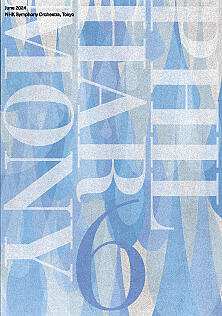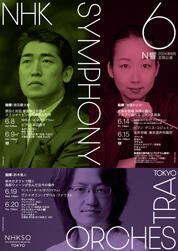- Home
- Concerts
- Subscription Concerts 2023-2024
- Program A
- No. 2013 Subscription (Program A)
No. 2013 Subscription (Program A)
NHK Hall
Google Map Seating Chart
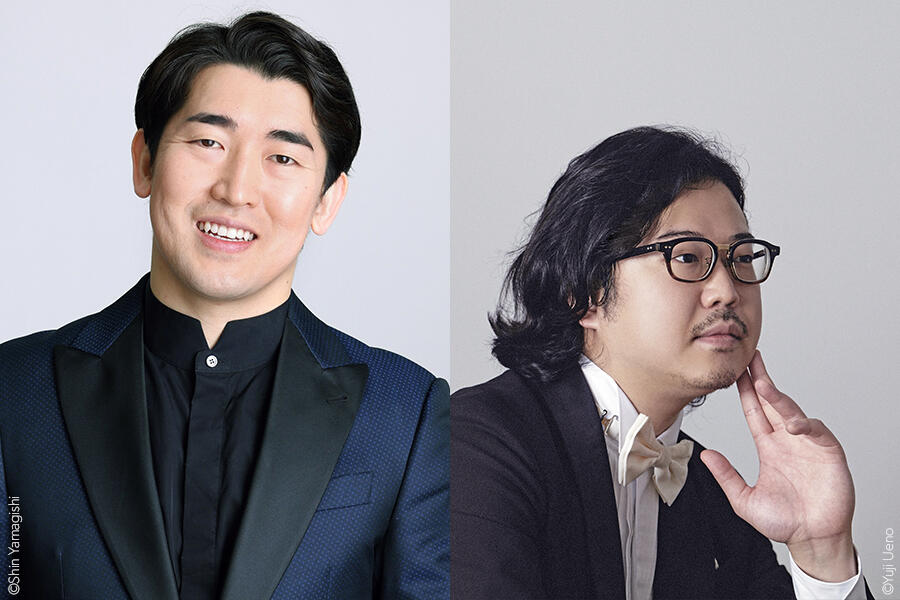
Program
Scriabin / Rêverie, Op. 24
Russian composer-pianist Scriabin is often contrasted with his former schoolmate Rachmaninov (1873–1943) one year his junior. The two friends had indeed opposite aesthetics and styles in composition: Rachmaninov’s reliance in the 19th-century Romantic idioms was unswerving during his long life, whilst Scriabin parted from the traditional tonal language through his radical harmonic device called “mystic chord(s)” coupled with his mysticism and synesthesia (musical notes and keys made him see certain colors). Today’s concert program looks back at Scriabin’s early years prior to this epochal step forward for music history, although his highly personal approach will have virtually no successor after his sudden death at age 43.
Rêverie (1898) is the first purely orchestral work actually completed by young Scriabin who had, up until then, only finished piano solo pieces and a piano concerto (discussed below). He adopted this dreamy French title and its Russian translation mechty (daydreams) taking the advice of his publisher and patron Belyayev. A member of the advisory board of Belyayev’s publishing firm, Rimsky-Korsakov (1844–1908) conducted the highly-praised first performance in December 1898, to Scriabin’s delight. This brief, beautifully elaborate gem is in A–B–A form. The opening section A introduces the meandering main theme on a clarinet and then the subtheme on an oboe, followed by the brighter animated section B developing the sub-theme. After the section A returns, an effective whole pause leads to a calm coda based on the main theme.
[Kumiko Nishi]
Scriabin / Piano Concerto F-sharp Minor Op. 20
Scriabin was proud that his birthday fell on the Russian orthodox Christmas day. Before he could talk and walk, the only child lost his mother who was an excellent pianist. Because his father was working overseas, Scriabin was brought up – and doted on – by his music-loving aunt, grandmother and great-aunt. The musically gifted boy was educated by the illustrious piano teacher Zverev before studying at the Moscow Conservatory until 1892.
A composer and phenomenal improviser as well, young Scriabin wrote many piano solo pieces of which the titles – nocturne, polonaise, mazurka and so forth – evoke his idol Chopin. Following his 1896 European debut as a rising composer-pianist, Scriabin completed the Piano Concerto (1897), his first piece involving orchestra.
A characteristic of Scriabin’s piano compositions is the virtuosic eloquence of the left hand part: while his right hand was injured by a horse carriage accident in 1885 and excessive practicing in 1891, Scriabin’s left hand was greatly trained. The Piano Concerto opens with a F-sharp-minor sonata. The pianist enters in an improvisatory manner revealing the lyrical first theme, and later states the second theme reminding us of the Polish folk dance “mazurka.” The next slow movement in F-sharp major lets the strings announce the theme, followed by the four contrasting variations and a coda. The F-sharp-minor finale, a rondo-sonata, has the heroic first theme recalling the Polish folk dance “polonaise” and the mellifluous second theme. The coda brings the Concerto to a passionate ending in F-sharp major.
[Kumiko Nishi]
Scriabin / Symphony No. 2 C Minor Op. 29
The above-mentioned Rêverie and Piano Concerto earned Alexander Scriabin (1872–1915) a remarkable reputation, which spurred him on to a bigger-scale orchestral genre. In 1899–1900, the ambitious composer in his late twenties tackled his Symphony No. 1, a six-movement work requiring solo singers and a mixed chorus for the finale as if to tread the footsteps of Beethoven. It was first performed partly (without vocalists) in 1900 and entirely the next year. Scriabin was eager for his next symphony to include voices again. His publisher and patron Belyayev, however, was strongly opposed to the idea in mid-1900 on the grounds that the requirement for a number of singers contributed to the difficulties of making No. 1’s performance happen readily and frequently. Completed in a short time in 1901, the Symphony No. 2 was turned into a purely instrumental piece.
No. 2 is cast in five movements. The first two and the last two are performed without pause. Thus it could be heard as a classical three-movement symphony, while it is unconventional with respect to the fact that the home keys of all the movements are different from each other. The central third movement (Andante, B major) famously gives a realistic depiction by letting a flute reenact a bird twittering. This axis is surrounded symmetrically by the rhythmically active second movement (Allegro, E-flat major) and the scherzo-style fourth movement (F minor) headed Tempestuoso (stormily). The dark first movement (Andante, C minor) and the elated march-like last movement (Maestoso [majestically], C major) seem to form a pronounced contrast: in fact, Scriabin provided them unity by utilizing the same melody for the principal themes introduced at the outset of the first movement (by a clarinet) and the finale (mainly by brass and timpani).
No. 2’s premieres in St. Petersburg (1902) and Moscow (1903) caused complaints among conservative critics primarily due to the dissonances. Before long, the audacious composer would create three more symphonies far beyond the frame of a traditional symphony.
[Kumiko Nishi]
[Encore]
June 8: Grieg / Lyriske stykker VIII Op.65 - 6. Bryllupsdag pa Troldhaugen (Wedding-day at Troldhaugen)
June 9: Chopin / Mazurka No. 34 C Major Op. 56-2
Piano: Kyohei Sorita
Artists
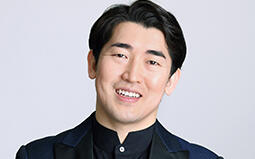 ConductorKeitaro Harada
ConductorKeitaro Harada
Keitaro Harada is a highly talented up-and-coming conductor appearing in Europe, America and Asia. He was born in Tokyo in 1985, and studied conducting under Frederick Fennell at the Interlochen Arts Academy. In 2006, at the age of twenty-one, he made his debut by conducting the Moscow Symphony Orchestra. After that, he received training from Lorin Maazel, and participated in the Tanglewood Music Festival as well as the Pacific Music Festival in Sapporo. He has served as Associate Conductor of the Cincinnati Symphony Orchestra, the Cincinnati Pops Orchestra, the Arizona Opera, and the Richmond Symphony Orchestra, and in the 2020 season, he became Music and Artistic Director of the Savannah Philharmonic in Georgia, USA. At home, he has also worked with many orchestras, and is now Permanent Conductor of the Tokyo Symphony Orchestra from April 2021, and Principal Guest Conductor and Artistic Partner of the Aichi Chamber Orchestra from April 2024. He is also actively conducting operatic works at home and abroad, and has won many awards, including the Sir Georg Solti Conductor Award (as the first Japanese recipient), the Akeo Watanabe Music Foundation Music Award and the Hideo Saito Memorial Fund Award.
Since he first conducted the NHK Symphony Orchestra in August 2019, he has returned to the orchestra’s podium frequently. This is his first appearance to conduct the orchestra’s subscription concert since January 2022. Much attention will be focused on how Keitaro Harada, a conductor producing fresh and vigorous music with an unconventional approach, will be delivering the charm of Scriabin’s works, which are rarely performed.
[Katsuhiko Shibata, music critic]
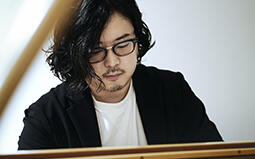 PianoKyohei Sorita
PianoKyohei Sorita
Kyohei Sorita is the recipient of 2nd prize of the 18th International Chopin Piano Competition in 2021, the highest prize ever awarded to a Japanese.
He released his debut CD in 2015, and in the following year, held his debut recital at Suntory Hall to a packed audience. Since then, he has expanded his repertoire of piano solo and concertos from classical to modern times, and made his debut at Salle Cortot in Paris and at the Musikverein in Vienna in 2020, thus has been building up his career both at home and abroad. The orchestras he has worked with to date include the Russian National Orchestra, the Deutsches Symphonie-Orchester Berlin, the Warsaw National Philharmonic Orchestra, the Tokyo Metropolitan Symphony Orchestra and the New Japan Philharmonic, to name a few.
Kyohei Sorita studied piano at the Moscow Tchaikovsky Conservatory and the Fryderyk Chopin University of Music in Warsaw, and conducting in Vienna. In recent years, he focuses on conducting and often plays piano while conducting from the keyboard. As a man of his word, he established his own record label in 2019, and a corporation to operate an orchestra in 2021, for the purpose of providing young professional musicians with opportunities to perform in public.
This is his first collaboration with the NHK Symphony Orchestra after a two-year absence, his last appearance being in a January subscription concert in 2022. I expect he will present the audience Scriabin’s early concerto, written at the end of the 19th century, with a performance rich in subtle colors and tones.
[Arisa Iida, music facilitator]
Download
Ticket
Program A
No. 2013 Subscription (Program A)
NHK Hall
Google Map
Seating Chart
Single Tickets Release Date
Pre-sales for Subscribers:Wednesday, February 28, 2024
*about subscribers
Sale to General Public:Sunday, March 3, 2024
Price
| S | A | B | C | D | E | |
|---|---|---|---|---|---|---|
| Ordinary Ticket | 9,100 | 7,600 | 5,900 | 4,800 | 3,800 | 2,000 |
| Youth Ticket | 4,000 | 3,500 | 2,800 | 2,100 | 1,500 | 1,000 |
Seating chart Enlarge Print PDF
*tax included
*Subscribers receive a 10% discount (Available at NHKSO WEB Ticket and N-Kyo Guide)
*For wheelchair-accessible seats, please refer to the N-Kyo Guide
Youth Tickets
Youth Tickets are great options for those of 25 years old and younger
Subscription tickets
Release Date
ANNUAL SUBSCRIPTION TICKETS
Mon., July 17, 2023 10:00am
[For Subscribers: Sun., July 9, 2023 10:00am]
SEASONAL SUBSCRIPTION TICKETS (SPRING)
Fri., February 16, 2024 10:00am
[For Subscribers: Wed., February 7, 2024 10:00am]
Where to buy
NHKSO WEB Ticket | Saturday, June 8 (In English / Seats not selectable)
NHKSO WEB Ticket | Sunday, June 9 (In English / Seats not selectable)
NHKSO WEB Ticket (In Japanese only / Seats selectable)
N-Kyo Guide (Purchase by telephone only)
Other Ticket Agents
Broadcast
 NHK-FMNo. 2013 Subscription (Program A)
NHK-FMNo. 2013 Subscription (Program A)
Thursday, Jun 13, 2024 7:30PM - 9:10PM
Program:
Scriabin / Rêverie, Op. 24
Scriabin / Piano Concerto F-sharp Minor Op. 20
Scriabin / Symphony No. 2 C Minor Op. 29
Conductor:Keitaro Harada
Piano:Kyohei Sorita
Recorded:June 8, 2024 NHK Hall
*Repertoire, conductor, soloists and program order are subject to change without notice.
*Pre-school children are not allowed in the concert hall

